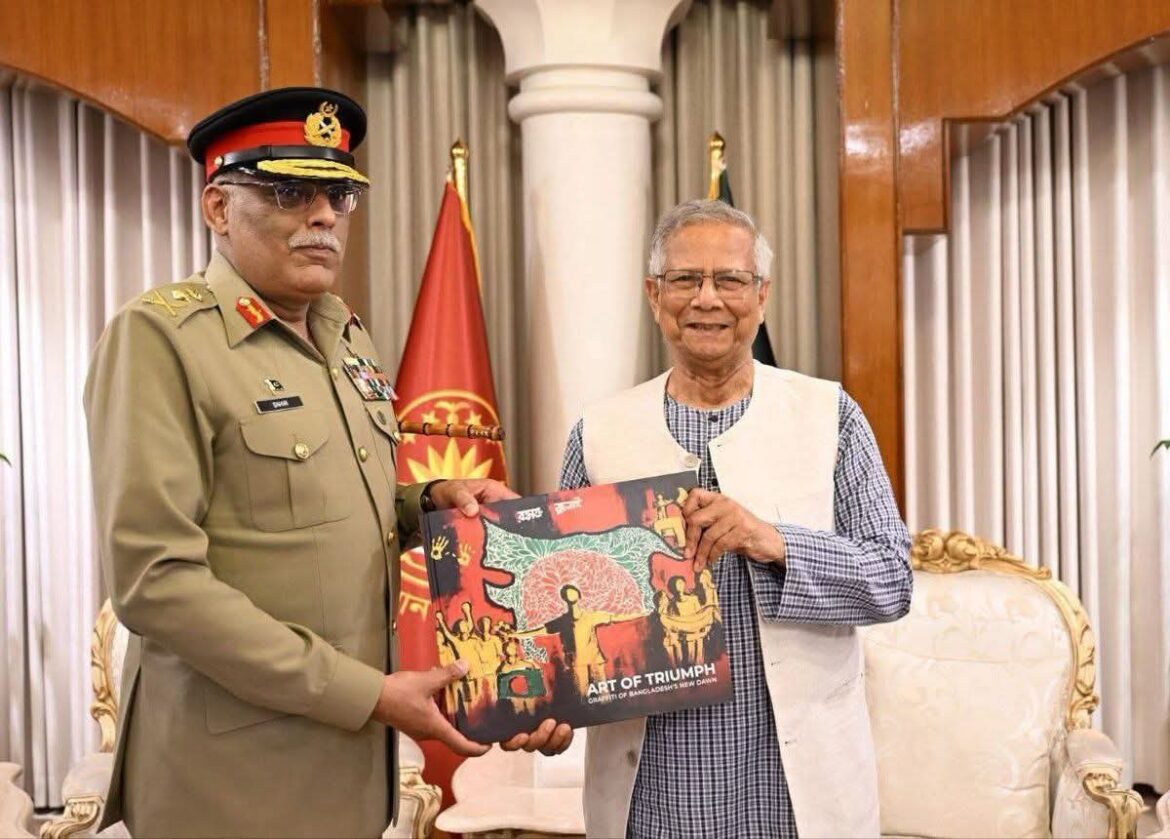Dhaka, October 29: Bangladesh’s Chief Adviser Muhammad Yunus has sparked controversy after presenting a book to Pakistan’s top military official that showed parts of India’s northeast as belonging to Bangladesh, officials and local media said on Sunday.
The incident occurred on Saturday at the state guest house Jamuna in Dhaka, where Yunus met General Sahir Shamshad Mirza, Chairman of Pakistan’s Joint Chiefs of Staff Committee. The disputed map was printed on the cover of a book that Yunus gifted to the visiting general, according to people familiar with the meeting.
Neither Yunus’s office nor Bangladesh’s foreign ministry commented on the map depiction. India has yet to issue an official response, though the Ministry of External Affairs (MEA) had lodged a strong protest last December when a similar map appeared online in a post by a Bangladeshi student adviser.
Following the meeting, Yunus’s office said the two sides discussed “bilateral trade, investment, and defence cooperation.” It added that both countries shared “historical, cultural and people-to-people ties,” and that the visit was aimed at expanding cooperation in areas such as trade, connectivity, and investment.
General Mirza’s visit comes two months after Pakistan’s Foreign Minister and Deputy Prime Minister Ishaq Dar travelled to Dhaka, urging Bangladesh to “clean hearts” and move past the painful memories of the 1971 war, when Pakistani forces carried out a brutal crackdown in what was then East Pakistan.
The use of the map has triggered sharp criticism on social media in both India and Bangladesh, with commentators warning that the issue could complicate Dhaka’s relations with New Delhi.
In December 2024, India protested after Mahfuz Alam, a student adviser in Bangladesh, shared an image online showing an expanded version of Bangladesh that included parts of India’s northeast. The post was later deleted, and Bangladeshi officials described the image as “graffiti,” not an official representation.
The latest controversy comes as the Yunus-led interim government faces scrutiny over its diplomatic posture and ties with neighbouring countries.
